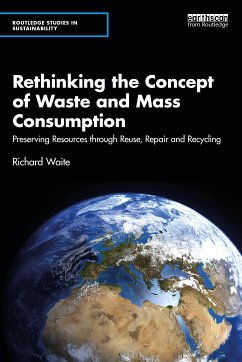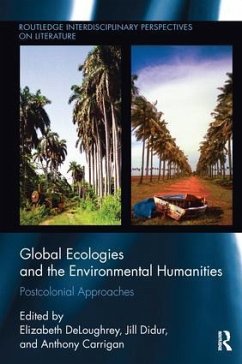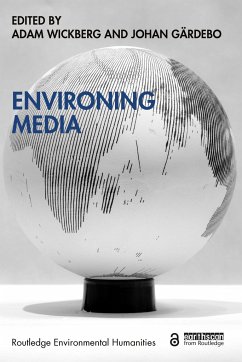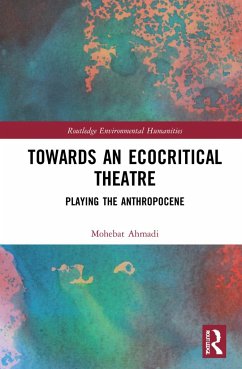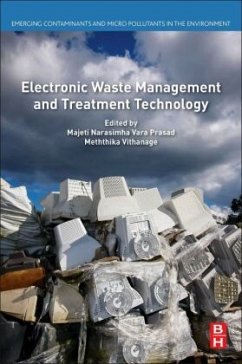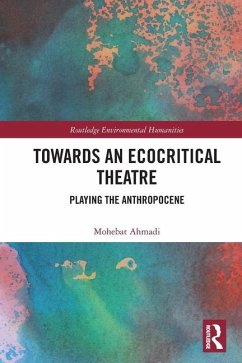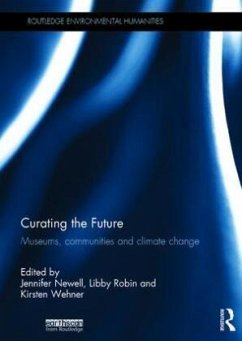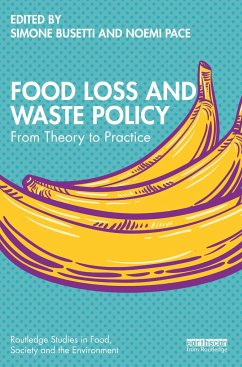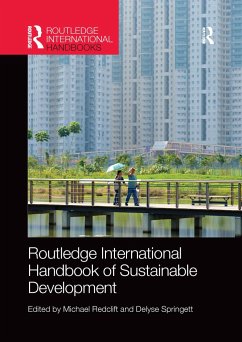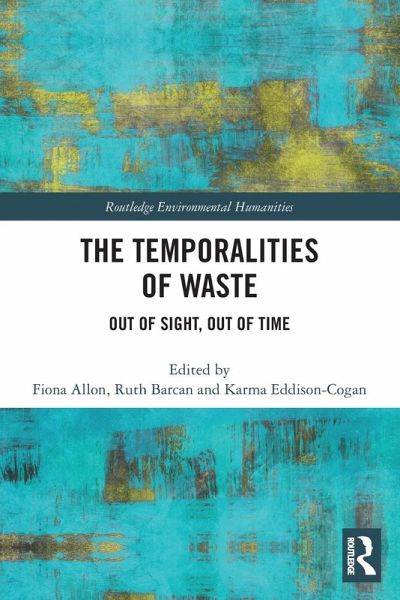
The Temporalities of Waste
Out of Sight, Out of Time
Herausgegeben: Allon, Fiona; Barcan, Ruth; Eddison-Cogan, Karma
Versandkostenfrei!
Versandfertig in 6-10 Tagen
43,99 €
inkl. MwSt.

PAYBACK Punkte
22 °P sammeln!
This book investigates the complex and unpredictable temporalities of waste. Reflecting on waste in the context of sustainability, materiality, social practices, subjectivity and environmental challenges, the book covers a wide range of settings, from the municipal garbage crisis in Beirut, to food rescue campaigns in Hong Kong and the toxic by-products of computer chip production in Silicon Valley.Waste is one of the most pressing issues of the day, central to environmental challenges and the development of healthier and more sustainable futures. The emergence of the new field of discard stud...
This book investigates the complex and unpredictable temporalities of waste. Reflecting on waste in the context of sustainability, materiality, social practices, subjectivity and environmental challenges, the book covers a wide range of settings, from the municipal garbage crisis in Beirut, to food rescue campaigns in Hong Kong and the toxic by-products of computer chip production in Silicon Valley.
Waste is one of the most pressing issues of the day, central to environmental challenges and the development of healthier and more sustainable futures. The emergence of the new field of discard studies, in addition to expanding research across other disciplines within the social sciences, is testament to the centrality of waste as a crucial social, material and cultural problem and to the need for multi- and transdisciplinary approaches like those provided in this volume. This edited collection seeks to develop a framework that understands the material properties of different kinds of waste, not as fixed, stable or singular but asdynamic, relational and often invisible. It brings together new and cutting-edge research on the temporalities of waste by a diverse range of international authors. Collectively, this research presents a persuasive argument about the need to give more credence to the capacities of waste to provoke us in materially and temporally complex ways, especially those substances that complicate our understandings of life as bounded duration.
This book will be of great interest to students and scholars of the environmental humanities, cultural studies, anthropology and human geography.
Waste is one of the most pressing issues of the day, central to environmental challenges and the development of healthier and more sustainable futures. The emergence of the new field of discard studies, in addition to expanding research across other disciplines within the social sciences, is testament to the centrality of waste as a crucial social, material and cultural problem and to the need for multi- and transdisciplinary approaches like those provided in this volume. This edited collection seeks to develop a framework that understands the material properties of different kinds of waste, not as fixed, stable or singular but asdynamic, relational and often invisible. It brings together new and cutting-edge research on the temporalities of waste by a diverse range of international authors. Collectively, this research presents a persuasive argument about the need to give more credence to the capacities of waste to provoke us in materially and temporally complex ways, especially those substances that complicate our understandings of life as bounded duration.
This book will be of great interest to students and scholars of the environmental humanities, cultural studies, anthropology and human geography.





